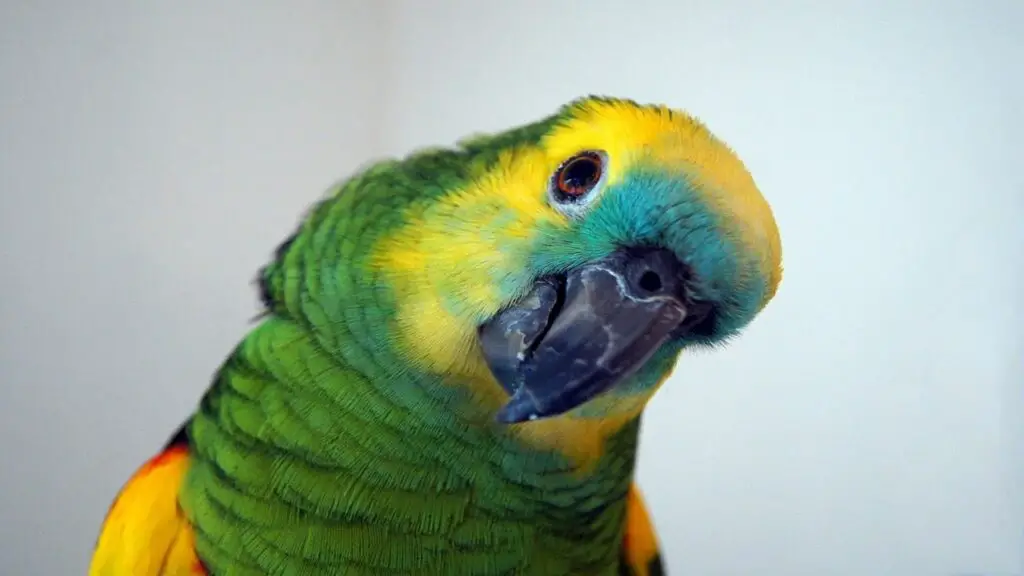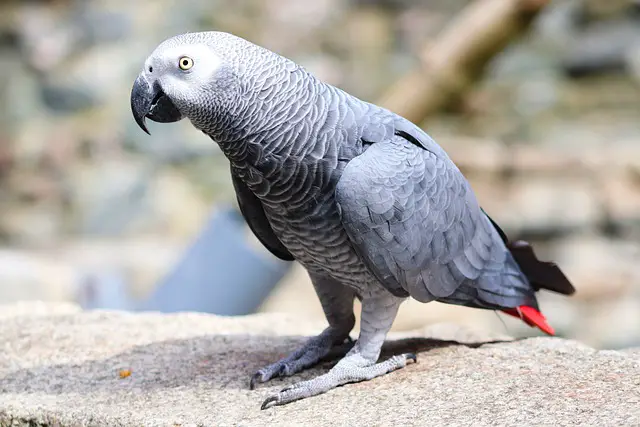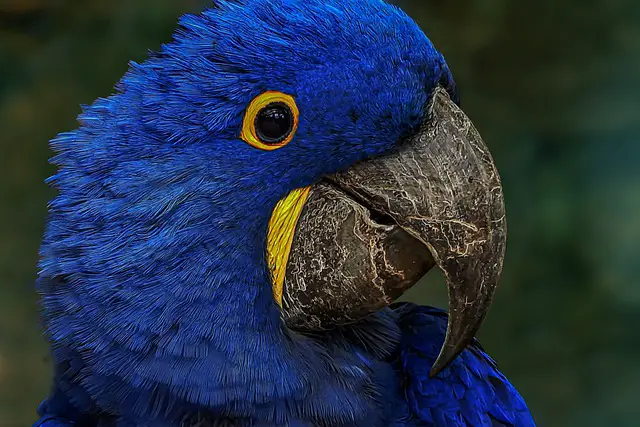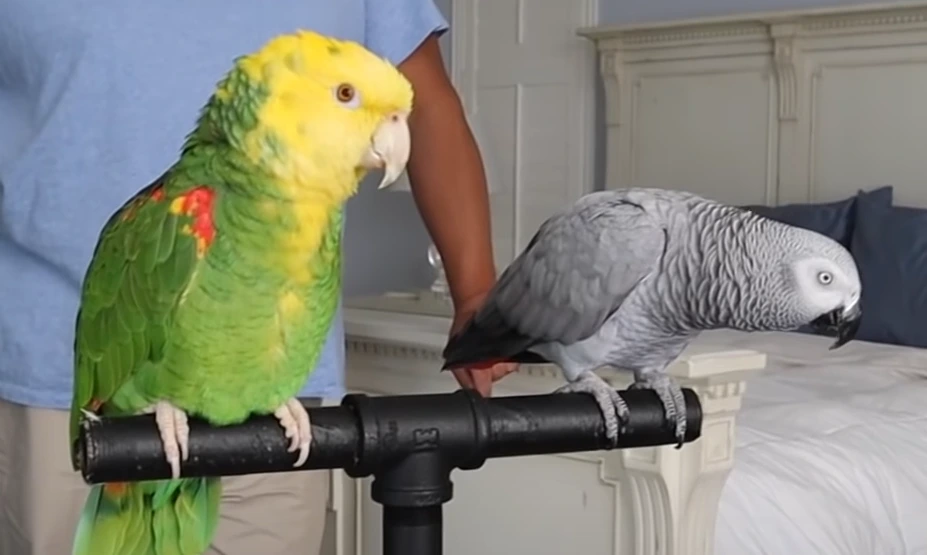Amazon Parrot Vs African Grey Parrot | 9 Differences | Bird Addicts
Before adopting a pet parrot everyone feels confused about which parrot is suitable for them. There are many parrots which make excellent pets. Amazon and African Grey parrot are two of the most common and fascinating birds that make great pets! Many cannot decide which one will be good for him/her. Here we will discuss the comparison between the Amazon parrot and the African Grey parrot (Amazon Parrot Vs African Grey Parrot).
1. Appearance
Amazon parrot
There are different colored Amazons available. Yellow-Headed, Double Yellow-Headed, Yellow Nape, and the Blue-Fronted are most common. There are many other color variations available also.

African Grey
Unlike Amazon Parrot, African Grey comes in only one variation. Light grey body, shiny black beak, scaly feet and crimson red tail feather. They are not as bright as Amazons. Some breeders have red factor African Grey which is very rare and obviously high in price.

Note: If appearance is the primary concern, then, you should check other species like rainbow lorikeet or Indian Ringneck parrot. These two species are not that vibrant in color.
2. Dust Issue in parrots
Amazon parrot
Not dusty. Amazon parrots have oil glands and they use this oil to preen their feathers. Although there will be a lot of fluff around your room during molting.
African Grey
Like Cockatoos and cockatiels, African Greys are dusty. African Greys are the most dust producers among all parrots. They produce a good amount of dust daily. If you clean the cage in the morning you will find a thin layer of dust in the evening for sure. One should take it seriously because it may lead to Bird Fancier’s Lung disease.
Not only humans affected by the dust produced by African Grey, but also Amazon, conures and especially Macaws will be affected severely. Main cause of Pulmonary Hypersensitivity Disease among pet birds is dust.

Note: Dust issues should be considered if you have health issues with dust. Although, dust issues can be resolved using good air filters/purifiers, wet moping the cage and bird room, bathing your bird on regular basis. African Greys are not known as great bather. But that depends how you raised your baby.
3. Body language-Biting
Amazon parrot
Amazon is known to be the most bitey. Although the Amazon parrot gives warnings most of the time before biting. They are very straightforward about their feelings, so you can avoid handling your bird when he/she is in a bad mood and over-excited.
The warnings are very clear. Amazons eyes dilate or pin depending on their mood. You can tell much about their feelings by watching their eyes; whether you should give a scratch or leave them alone to avoid blood drawing. They will bite when they are in a bad mood, they will also bite when they are excited also (just like my 2 year old baby boy. He runs to me when I am back from work and bites me out of excitement. We are working on it. Not talking about angry moments, lol.)
African Grey
African Greys will bite without any warning. It is difficult to understand their feelings. But they are not like Amazon. They will only bite when they feel insecure. They might be stressed with loud voices and fast hand movements (that’s why housing an African Grey around children is not a good idea).
Note: Both are biter. Every pet bird bites. But Amazons give clear warning before biting like pinning the eye. A bite from a grey in a similar situation might be more from fear or defensiveness rather than aggression or excitement.
4. Behavioral issue
Amazon parrot
Amazon parrots are hardier than African grays and are not as prone to feather plucking. Emotionally resilient than African Greys. Very active and demanding. Even newly wean babies are eager to roughhouse and test their limits. At 6 months old, a baby Amazon may be more difficult to get along with than at 6 years old.

African Grey
Easily stressed and bored. Prone to feather plucking. They don’t handle boredom well. Cannot withstand difficult emotional situations. African Greys are not enthusiastic like Amazons.
Note: Behaviorally Amazons are more stable and forgiving to new environments. African Greys need constant positive interaction with caregivers.
5. Temperament
Amazon parrot
Moody and aggressive during breeding season due to hormonal surge. Amazons are outgoing. If raised appropriately, they become very social.
African Grey
Temperamentally stable, slightly more docile, a bit shy, empathetic. Don’t like new people, new environments. They tend to be more one person birds. Less social.
Note: Most of the time Amazons accept new people on the other hand Greys doesn’t like new people.
6. Housing around Children
Amazon parrot
Amazons love it if you sang to them, danced around, super dramatic, and talked loud. New people, super cool for a well socialized Amazon. Maybe so super cool they get a little out of control. So, yes you can house an Amazon around children but constant supervision is a must.
African Grey
Greys don’t like fast movement, loud sounds. They might easily stress out in a noisy environment. It is not a good idea to put an African Grey around children.
Note: Although children are not safe around any large parrot. But Amazons will not stress about having children around them.
7. Talking Ability
Amazon parrot
Amazons love to sing, they sing very well. They also talk very well. Amazon parrots are chatterboxes, but they cannot speak as clearly as African Greys. Yellow naped Amazons are good talkers among other Amazon parrots.
African Grey
Greys are super talkers. Best talker among all pet birds. They will mimic almost anything they hear. Think twice if you could handle all the sounds that a Grey would mimic. Once I taken care my friends Grey, he was saying sh**ty breakfast because I forgot to add pumpkin to his breakfast. He will say goodnight exactly at 9 pm by watching the clock on the wall (yes, tested him by changing time). He will say are you sad? if you look sad.
Note: Although Grey and Amazons talk great, there is no guarantee that every Grey or Amazon will talk.
8. Intelligence
Amazon parrot
Amazons are not intelligent like Greys.
African Grey
Grey are more intelligent, probably, the most intelligent and brightest bird. You can train an African Grey more easily than any other bird. They have higher-level cognitive abilities.
Note: Greys can identify color, number. They can call their favorite person by name; ask for favorite toys or food. Sometimes they can understand your mood also.
9. Handling
Amazon parrot
Amazons are great eaters, bathers, relatively independent and bond very well with any other amazon.
African Grey
Handling a Grey is a little bit more difficult. They need more attention and quality time every day, they really need it.
Note: Well, if you decided to adopt a parrot as a pet, then handling should not be a concern. Both of the species will take a significant amount of time from your daily life.
Amazon Parrot Vs African Grey Parrot | Final word
If you like outgoing, loud and a singer in your flock go for Amazon parrot. They love to sing, dance. But they get aggressive during hormonal surge, bite frequently (for bad mood or over excitement). They get along with other amazon also.
On the other hand, if you like docile, super talkers who can continue a conversation with you then go for African Grey. But they need quality time every day, otherwise they will get bored. Boredom is one thing, which African Greys don’t handle well. Consequently they will pluck their feathers. Another thing to consider is dust. African Greys are dusty. If you have health issues regarding dust or other birds like conures or Macaws then African Greys are not a good choice.
Amazon parrot and African gray parrot are both excellent choices for a pet bird. It really depends on what the potential owner is looking for in a bird and how much time they can commit to interacting with their bird. Whichever parrot the potential owner chooses, they will be sure to have a delightful companion for many years to come.
Bird comparison posts you may like-
Cockatiel Vs Green Cheek Conure | 9 Differences | Bird Addicts
Cockatiels Vs Quaker parrots: Similarities and differences between Cockatiels and Quaker parrots.
